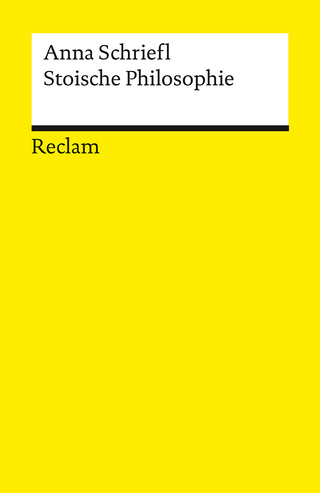
Meaning and Proscription in Formal Logic
Springer International Publishing (Verlag)
9783319889979 (ISBN)
This book aids in the rehabilitation of the wrongfully deprecated work of William Parry, and is the only full-length investigation into Parry-type propositional logics.
A central tenet of the monograph is that the sheer diversity of the contexts in which the mereological analogy emerges - its effervescence with respect to fields ranging from metaphysics to computer programming - provides compelling evidence that the study of logics of analytic implication can be instrumental in identifying connections between topics that would otherwise remain hidden. More concretely, the book identifies and discusses a host of cases in which analytic implication can play an important role in revealing distinct problems to be facets of a larger, cross-disciplinary problem.
It introduces an element of constancy and cohesion that has previously been absent in a regrettably fractured field, shoring up those who are sympathetic to the worth of mereological analogy. Moreover, it generates new interest in the field by illustrating a wide range of interesting features present in such logics - and highlighting these features to appeal to researchers in many fields.Thomas Macaulay Ferguson received his PhD in philosophy with a focus on philosophical logic from the City University of New York Graduate Center. He has published material on a wide variety of subjects, including theories of semantic information, many-valued model theory, formal epistemology, and non-classical mathematics. He is currently editing the volume Graham Priest on Dialetheism and Paraconsistency (with Can Baskent and Hitoshi Omori), to appear in Springer’s “Outstanding Contributions to Logic” series. He is working as an ontologist for the Cyc artificial intelligence project at Cycorp in Austin and maintains an affiliation as a research scholar with the Saul Kripke Center at CUNY in New York.
Introduction: The Proscriptive Principle.-Nonsense and Proscription*.- Metaphysical Considerations on State Space Semantics.- A Computational Interpretation of Conceptivism*.- Faulty Belnap Computers and Subsystems of Efde*.- Cut-Down Operations on Multilattices*.- Correia Semantics Revisited*.- Concluding Remarks.
"This book contains a series of studies devoted to so-called containment logics. ... It is readable and contains a lot of interesting material for logicians and philosophers interested in non-classical logics in general, and particularly in their semantic characterization." (Andrzej B. Indrzejczak, Mathematical Reviews, October, 2018)
“This book contains a series of studies devoted to so-called containment logics. … It is readable and contains a lot of interesting material for logicians and philosophers interested in non-classical logics in general, and particularly in their semantic characterization.” (Andrzej B. Indrzejczak, Mathematical Reviews, October, 2018)
| Erscheinungsdatum | 16.02.2019 |
|---|---|
| Reihe/Serie | Trends in Logic |
| Zusatzinfo | XIII, 198 p. 9 illus. |
| Verlagsort | Cham |
| Sprache | englisch |
| Maße | 155 x 235 mm |
| Gewicht | 330 g |
| Themenwelt | Geisteswissenschaften ► Philosophie ► Allgemeines / Lexika |
| Geisteswissenschaften ► Philosophie ► Logik | |
| Schlagworte | Alternative Interpretations of Disjunction • cognate implication • Computational interpretations of logic • Conceptivist Theories of Entailment • Constructive nonsense logics • Containment Logic • Failure of disjunctive addition • Faulty Belnap computers • Infectiousness of nonsense • Kit Fine's truthmaker semantics • Kit Fine’s truthmaker semantics • Meaningfulness and Logic • Positivism, inference, and category mistakes • Relevant Entailment • Richard Angell on analytic containment • Rivals to Relevant Logics • William Parry computer science • William Parry mathematics • William Parry mereology • William Parry philosophy • William T. Parry on Analytic Implication |
| ISBN-13 | 9783319889979 / 9783319889979 |
| Zustand | Neuware |
| Informationen gemäß Produktsicherheitsverordnung (GPSR) | |
| Haben Sie eine Frage zum Produkt? |
aus dem Bereich


